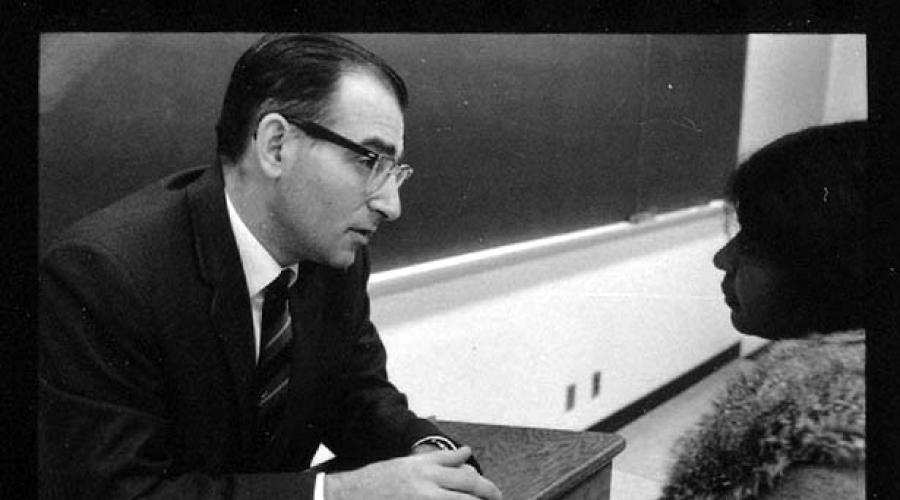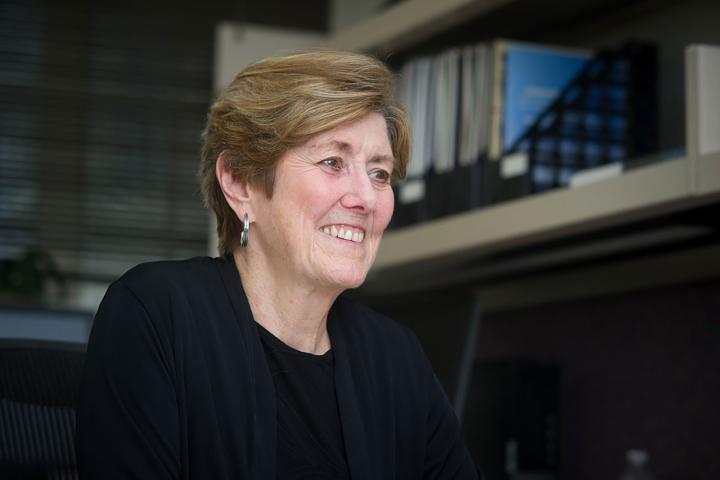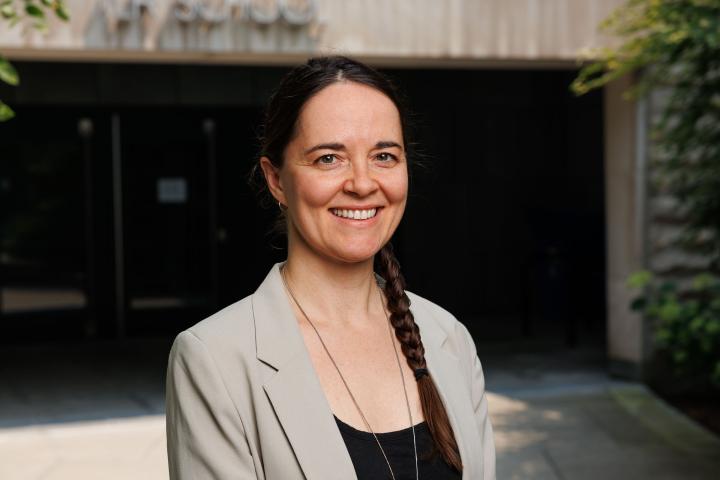
ILR’s Early International Path Chronicled
When William Sonnenstuhl arrived at the ILR School in 1983, Professor John Windmuller was long established as an international and comparative labor relations expert. This focus area continues to distinguish the school 40 years later.
“Without him, ILR would not have the faculty and global presence we have today,” said Sonnenstuhl, now an emeritus professor, explaining why he focused on Windmuller in Beyond Borders: Exploring the History of Cornell’s Global Dimensions, published this spring by Cornell University Press.
“At its founding, the ILR School’s founders envisioned a culture that valued the peaceful resolution of labor-management conflicts both nationally and internationally. In today’s global economy, that vision is as important as it has ever been,” wrote Sonnenstuhl, one of 54 authors who contributed chapters to the book.
Windmuller studied for his doctorate at ILR beginning in the 1940s. Some of the school’s founders were his teachers, and he inherited their commitment to international labor-management peace, Sonnenstuhl said.
“I knew John very well and was also fortunate to know the two founders who supervised his master’s and Ph.D., Jean McKelvey and Maurice Neufeld. I was fortunate to arrive at ILR when so many of the founders and early faculty were still here. From them, I learned to value ILR’s history and mission in the world.”
In 1951, ILR’s International Institute of Industrial and Labor Relations was established. Windmuller, who had just graduated with a Ph.D. after defending his dissertation on American labor unions and their influence on foreign policy, was named its director by Dean Martin P. Catherwood.
“The institute had three objectives: improving labor-management relations in New York state and the nation by studying the experiences of other countries; helping other countries to improve their labor-management relations by becoming familiar with the American experience; and training professionals for employment in the field of international industrial and labor relations,” Sonnenstuhl writes in the book.
The pattern for international and comparative studies within ILR was set within a few years, he said. Professors and countries they researched included Maurice Neufeld and Gardner Clark, Italy; Mark Perlman, Australia; Milton Konvitz, Liberia; Henry Lansberger, Latin America; Robert Aronson, Ghana and Jamaica; Walter Galenson, Latin America, Africa and Asia, and Alice Cook, Japan. ILR also helped build programs that shaped industrial and labor relations in Germany, Chile and Turkey.
Windmuller, who created the school’s first course in international and comparative relations in 1951 and taught it until retiring in 1987, wrote prolifically about international matters. His books included American Labor and the International Labor Movement, 1940 to 1953; The International Trade Union Movement; Labor Relations in the Netherlands; and International Trade Secretariats: The International Trade Union Internationals. His relationship with the International Labor Organization resulted in several other books: Antecedents of the International Labor Organization, Collective Bargaining in Industrialized Marketing Economies, and Soviet Employers in the ILO: The Experience of the 1930s.
Windmuller helped expand international work across Cornell, serving on the first executive committee of what would become the Einaudi Center. In 2008, ILR honored his legacy by establishing the John P. Windmuller Chair in International and Comparative Labor, awarded to Professor Gary Fields.
The study of international and comparative labor relations has burgeoned at the school, with many scholars based in the Department of Global Labor and Work. The faculty includes specialists in Asia, Europe, Latin America, North America, the Middle East and North Africa, and Sub-Saharan Africa.
About half of ILR undergraduates have an international experience through ILR International Programs or other opportunities. Some students earn the ILR Global Scholar distinction. In 2022, ILR’s Global Labor Institute was established to lead research and new conversations about work in global supply chains.
Windmulller, born in Dortmund, Germany, fled the Nazis with his family aboard the St. Louis, which was denied entry by Cuba and the United States, forcing a return to Europe. His parents were interned in France and Windmuller and his younger brother were sent to a boarding school in France for refugee children.
In 1942, the family moved to the United States, where Windmuller enlisted in the U.S. Army and screened German prisoners of war. After the war, he earned a bachelor's degree at the University of Illinois. His studies and military experience drew him to international and comparative labor relations, and he enrolled at ILR to study for his doctorate.
In 1983, he was named ILR’s first Martin P. Catherwood Professor. In 2003, he died at Kendal in Ithaca.
Sonnenstuhl, who came to ILR to research and teach about alcohol and drugs in the workplace, knew Windmuller well. “John really was Mr. International and the only faculty member teaching about international and comparative labor at that time.”
“As an individual, John was quiet, well-spoken, well read. He read a book every night. I cannot recall seeing him without a jacket and tie, even at family gatherings.”
“He was very punctual and knew the schedules of every European railroad, seemingly by heart. You could set your clock by him. Most of all, he was kind and generous to everyone.”


